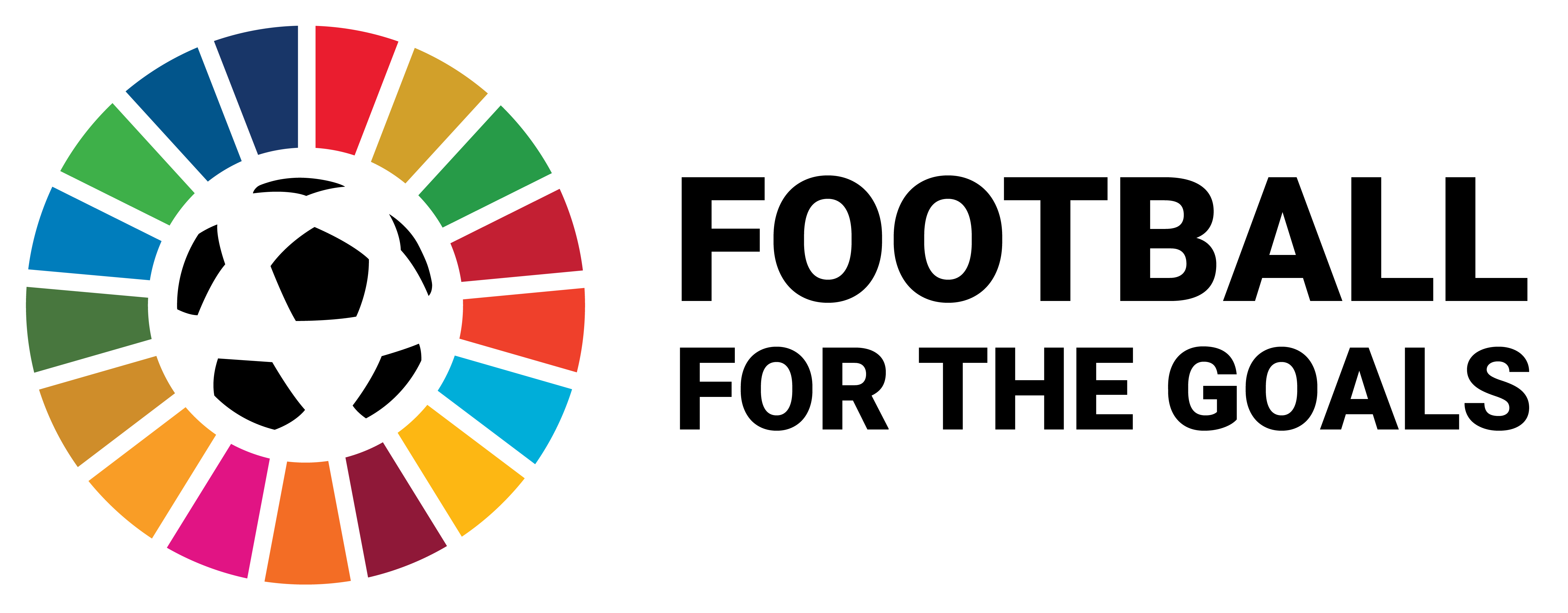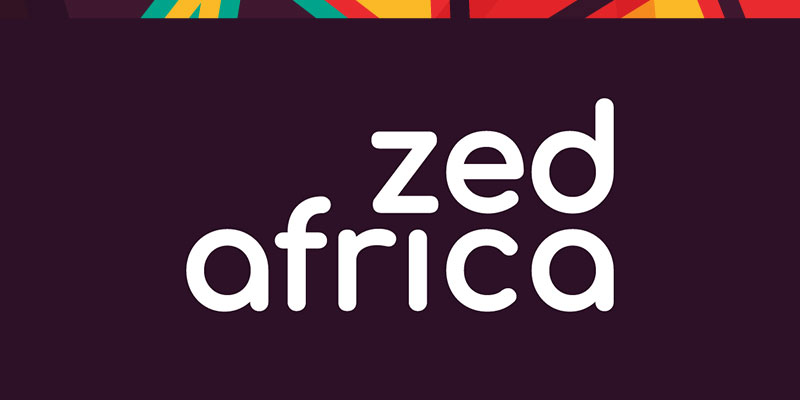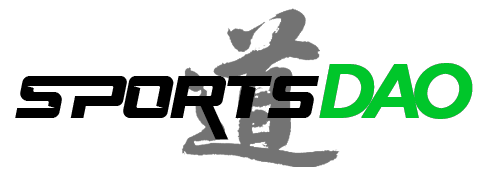
The football industry in Africa is mostly underdeveloped to the extent that is it almost impossible to find data/information on the size of the sector. The contribution of football/sport to the African economy remains largely unresearched and undocumented. We can attribute this to the fact that for a long time, football on the continent was viewed as a pass-time activity worthy only of government support as part of social welfare provision – a cost centre. Even corporates invested in football as a social activity often to provide recreation for their staff. Schools provided another area where the sport was practised as an extra-curricular activity.
As a result, during times of austerity as we have had in the recent past, sports tend to suffer most as an obvious target for spending cuts. In Africa, we observed this happen in the 80s and 90s when spending, especially on community sports infrastructure declined sharply. In Kenya, for example, we saw corporates divest from football with the death of clubs such as Rivatex, Eldoret KCC, Panpaper, Oserian and many others. Interestingly, this is around the period football started being aggressively commercialised in Europe.
Still, we can be confident that football plays a significant role in the continent’s socio-economic development. Football is omnipresent in Africa occupying the time and energies of the significantly youthful population. However, the sport’s popularity has not been accompanied by any significant investment like other parts of the world – Asia and the Americas have followed Europe’s cue. We can attribute this to ignorance of the role sport can play in the continent’s quest for development.
Football especially can be a powerful tool owing to its popularity and ubiquity on the content. The game is omnipresent in Africa, with passion and talent in abundance as can be witnessed at the various levels of the game from amateur ranks in Africa’s estates and villages to the global elite stage. However, there is a need for Africa to understand the broader issues surrounding the game and come up with strategies to exploit the opportunities presented.
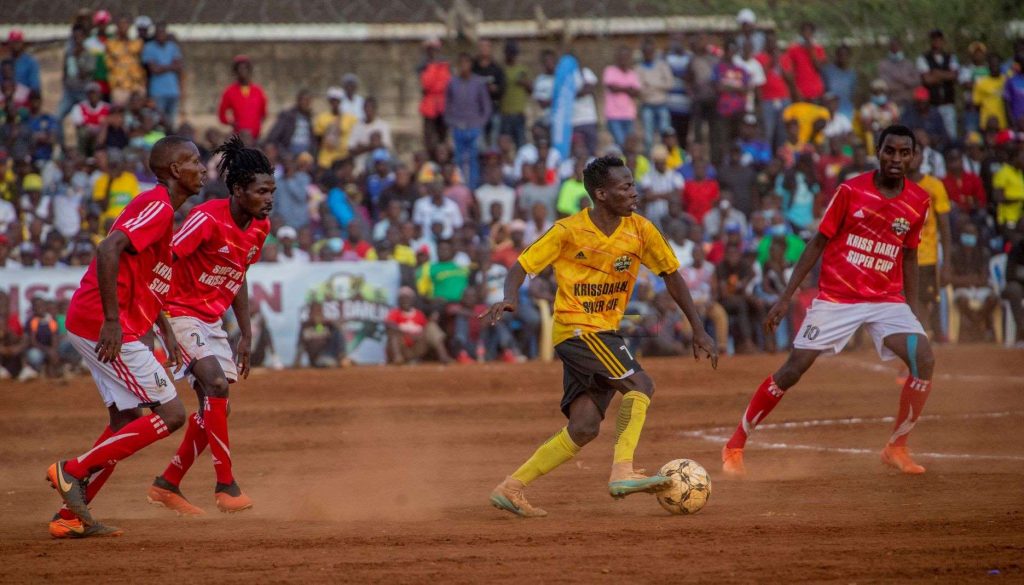
Action at the Kriss Darlin Super Cup 2020 – Woodley Grounds Nairobi Kenya
Football Development
Football development is one of FIFA’s core missions. Further, the game’s world governing body is responsible for regulating and organising the game worldwide and organising international competitions. It equips mainly youths with football skills, and values such as friendship, respect, fair-play or commitment practised through youth football competitions. Football development, therefore, would also involve coaching education and refereeing education.
FIFA conducts football development through its member associations. In Africa, Confederation of African Football (CAF) complements FIFA’s work. Although beneficial, football development is narrow in scope as it does not pay attention to the game’s business side, which has hindered the industry’s growth. However, we should note that both CAF and FIFA provide training for the game’s administrators though this is limited in scope. Further, there are very few tertiary institutions in Africa offering sports management education. As a result, the football industry and sports, in general in Africa are grossly lacking in managerial science capacity.
For this reason, FFA is advocating for Football Enterprise Education (FEE) to support Football Enterprise Development (FED) in Africa.
Football Enterprise Development
The process of setting up an enterprise is called entrepreneurship. An enterprise is a business venture. An enterprise is a business organisation formed and provides goods and services, creates jobs, contributes to national income, exports, and overall economic development.
Therefore, Football Enterprise Development involves football development in tandem with enterprise development to support the production of goods and services and increase job opportunities. Measurement of success should shift from sporting success to the sport’s contribution to national income and ultimately, economic development. Stakeholders should also monitor and evaluate social and cultural outcomes.
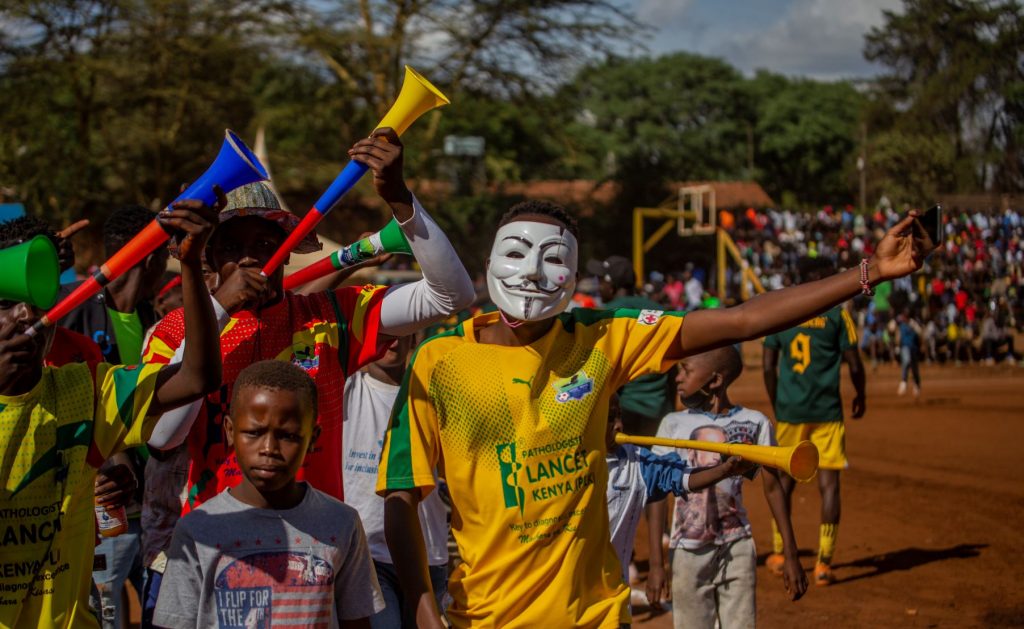
Gogo Boys fans. Pathologists Lancet Laboratories Kenya sponsors the team.
Football Enterprise Education
As noted earlier, there is a need to create awareness about the broader aspects of football and sports: political, economic, social, technological, legal and environmental factors. We need to start thinking about what other roles apart from playing, coaching and refereeing are necessary for the football industry’s development. Once we identify these roles, we should develop the required knowledge and skills through education – football enterprise education (FEE).
Sports Legal
We are again collaborating with Sports Legal to bring you this series.
Sports Legal is a non-profit sports organisation whose vision is to create a just, vibrant, healthy, resilient, and cohesive society through the engagement and use of sports and law, and promoting the contribution of the power of sport to the Sustainable Development Goals (SDGs).

In this series of The Africa Football Business Show, we highlight some of the broader aspects of football management and business from an Afrocentric perspective while appreciating the game’s global nature.
Topics
- Sports Diplomacy and Africa’s Football – 18th February
- The Role of Media in Football Enterprise Development – 4th March
-
-
- Special Session: CAF Elections – 8th March
-
-
- African Football in the Digital Age – 25th March
- Football and Marketing in Africa – 1st April
-
-
- Special Session: Project Management in Football – 8th April
- Special Session: Organisational Factors Influencing Football Development in East Africa – 22nd April
-
-
- Education through Football: A Model for Africa – 6th May
- The Future of Football Academies in Africa – 20th May
- Developments in Buying and Selling of Football Media Rights in Africa – 3rd June
Headling Speakers
To headline the Football Enterprise Development, we have the pleasure of hosting two distinguished scholars in sports, Dr Simon Adetona Akindes and Prof Simon Chadwick to discuss a crucial topic, Sports Diplomacy and Africa’s Football. The Football Foundation for Africa founder Brian Wesaala will moderate the discussion.
Dr Simon Adetona Akindes is a Professor of Political Science and Director of International Studies at the University of Wisconsin-Parkside in the USA.
He is a consultant for UNESCO higher education, culture and peace programs, and teaches in various postgraduate programs in Africa.

Dr Simon Adetona Akindes
He founded Tous au Sport (USA), and Hulum Wede Sport (Sports for All, Ethiopia). Both organizations seek to promote and expand physical activity and sports, with a view of creating healthier, cleaner and happier communities. He also created Foundation Monique Agboton-Akindes (MAAK), a Foundation for girls’ education in Benin. Prof. Akindes, a former football international of Benin, is a board member of Sports Africa Network, an organization focused on sports research in Africa. He still practices sports (tennis, table tennis, football) and is active in the gym.
He has made numerous presentations all over the world. He has published refereed book chapters and journal articles on education, democratization, political and social movements, civil-military relations, popular music and sports in Africa. His latest publication on sports in Africa “Sadio Mané, Made Outside Africa” was published on September 11, 2020, on the online publication “Africa is a Country” available https://africasacountry.com/2020/09/sadio-mane-made-outside-africa.
Professor Simon Chadwick is Director of Eurasian Sport at the Emlyon Business School (based in Paris & Shanghai), a global-top-50 ranked, triple-accredited business school.
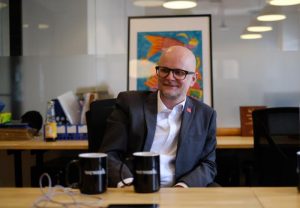
Prof Simon Chadwick
He is also Professor of the Eurasian Sport Industry and Director of CESI – the Centre for Eurasian Sport. Besides, Simon co-founded and co-directs the China Soccer Observatory (University of Nottingham, UK). He is also a Founding Editor of GeoSport, a digital sports platform created by the French Institute for International and Strategic Affairs.
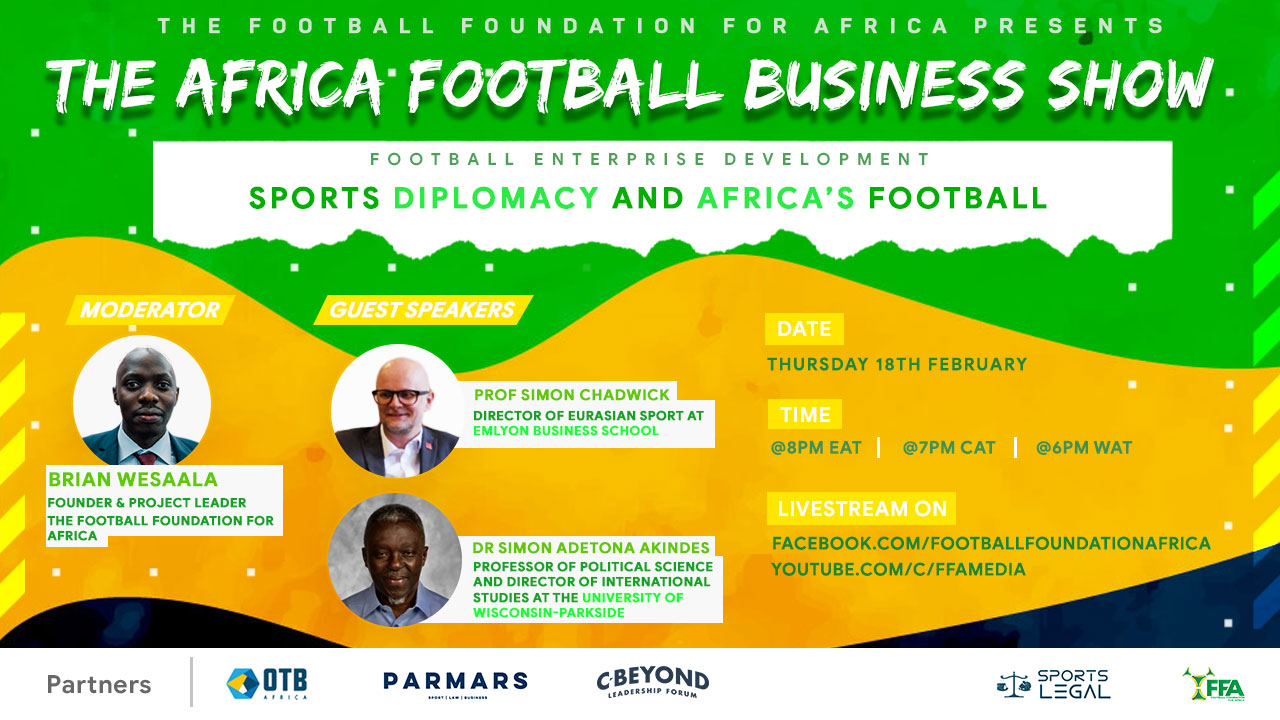
For sponsorship and partnership opportunities, please email us at media@footballfoundation.africa or call +254 794 587 100
Photos courtesy of Bencho Sports
 Back to Blog
Back to Blog 